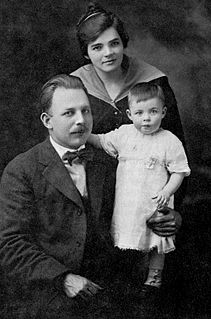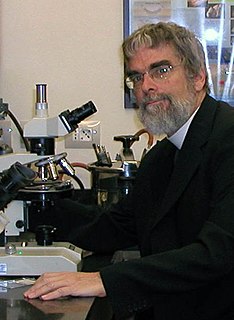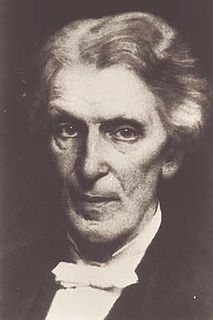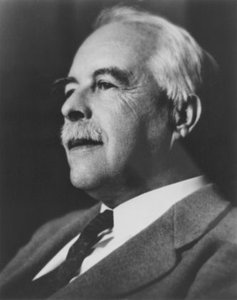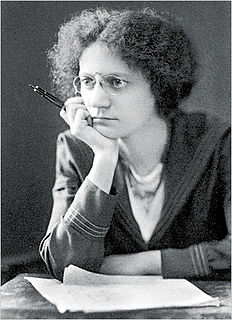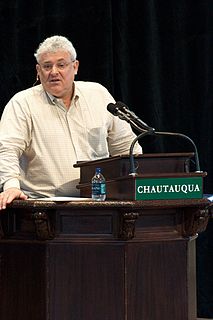A Quote by Jean Rostand
When a scientist is ahead of his times, it is often through misunderstanding of current, rather than intuition of future truth. In science there is never any error so gross that it won't one day, from some perspective, appear prophetic.
Related Quotes
It is too often believed that a person in his progress towards perfection passes from error to truth; that when he passes on from one thought to another, he must necessarily reject the first. But no error can lead to truth. The soul passing through its different stages goes from truth to truth, and each stage is true; it goes from lower truth to higher truth.
If it is permitted to the enlightened but baffled Statesman, when deserted and fallen from his place, to appeal from the voices of the moment to the judgment of more impartial times, with what right can we call in question the loftier form of the same prophetic trust which looks to a present God rather than to future men?
The scientist is a practical man and his are practical (i.e., practically attainable) aims. He does not seek the ultimate but the proximate. He does not speak of the last analysis but rather of the next approximation. His are not those beautiful structures so delicately designed that a single flaw may cause the collapse of the whole. The scientist builds slowly and with a gross but solid kind of masonry. If dissatisfied with any of his work, even if it be near the very foundations, he can replace that part without damage to the remainder.
If we can combine our knowledge of science with the wisdom of wildness, if we can nurture civilization through roots in the primitive, man's potentialities appear to be unbounded, Through this evolving awareness, and his awareness of that awareness, he can emerge with the miraculous-to which we can attach what better name than 'God'? And in this merging, as long sensed by intuition but still only vaguely perceived by rationality, experience may travel without need for accompanying life.
Every scientist, through personal study and research, completes himself and his own humanity. ... Scientific research constitutes for you, as it does for many, the way for the personal encounter with truth, and perhaps the privileged place for the encounter itself with God, the Creator of heaven and earth. Science shines forth in all its value as a good capable of motivating our existence, as a great experience of freedom for truth, as a fundamental work of service. Through research each scientist grows as a human being and helps others to do likewise.
One posthumous measure of a person's life is how often you imagine his impossible return to deal with some event he never lived to encounter. You picture his reactions, his advice, his sage commentary and humorous asides. For instance, I think about Mark Twain's hypothetical take on current events several times a week.
Statistically, it would seem improbable that any mathematician or scientist, at the age of 66, would be able through continued research efforts, to add much to his or her previous achievements. However I am still making the effort and it is conceivable that with the gap period of about 25 years of partially deluded thinking providing a sort of vacation my situation may be atypical. Thus I have hopes of being able to achieve something of value through my current studies or with any new ideas that come in the future.
The truth comes to rule, not through violence, but rather through its own power; [this is the central theme of John's Gospel:] When brought before Pilate, Jesus professes that He Himself is The Truth and the witness to the truth. He does not defend the truth with legions but rather makes it visible through His Passion and thereby also implements it.
People ask, 'Is the science going to run ahead of the ethics?' I don't think that's always the problem. I think it's that the science runs ahead of the politics. Bioethics can alert people to something coming down the road, but it doesn't mean policy and politicians are going to pay attention. They tend to respond when there's an immediate crisis. The job of the ethicist, in some ways, is to warn or be prophetic. You can yell loudly, but you can't necessarily get everybody to leave the cinema, so to speak.

